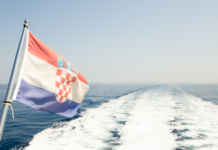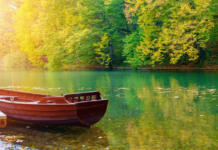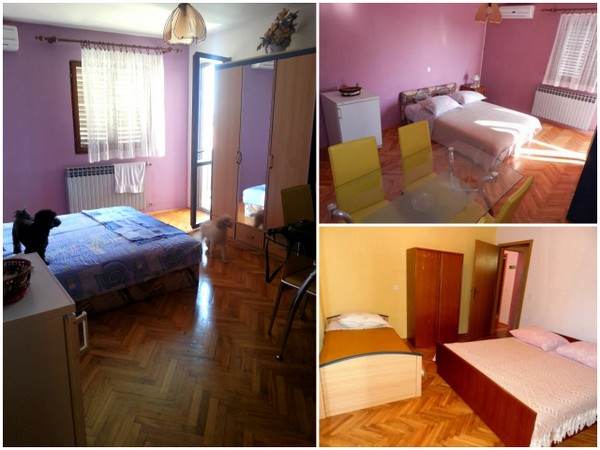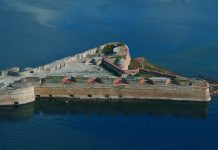The town of Split, thanks to its location on the Dalmatian coast, is blessed with a Mediterranean climate with warm summers and mild winters. Autumn in Split is such a pleasant season, a gentle way of reaching the winter while leaving the summer heat.
The weather is so mild that the terraces are still full. The tourists have gone home and Split’s inhabitants become the main actors of the city. Miniskirts have been put away until next spring, leaving room for warmer clothes. You can still enjoy coffee in the sun while watching mothers and their children, women returning from the market going home to prepare lunch and men whose discussions from time to time are interrupted by ‘a capella’ song.
During the morning it’s time to pass by the fish market which is full of fresh fishes such as bream, mackerel, St. Pierre or monk-fish and tuna.

The stalls of the fruits and vegetables market are full of mandarins, lemons, pumpkins and recently dried figs. People exchange recipes to prepare spinach, chard or cauliflower.
During the autumn in Split people rest after a successful tourist season and laugh while exchanging interesting stories from the summer past.
It is an ideal time for tourism, you can take the opportunity to visit the palace of the Diocletian Emperor without being rushed. Go to a typical restaurant of the city to taste the specialties of the region like smoked ham, octopus salad or grilled fish without having to wait for a table. It’s the perfect time to discuss experience and thoughts about life in Croatia with the local people who are in much less of a rush.

The accommodation prices are much cheaper compared to the month of August. It is much more affordable to stay at a hotel in the old town or in a modern apartment with a terrace and sea view.
If you want to visit the city while avoiding the crowd and your primary purpose is not to enjoy the beach, then you will be delighted with Split in the fall.
By Delphine Pavlak














